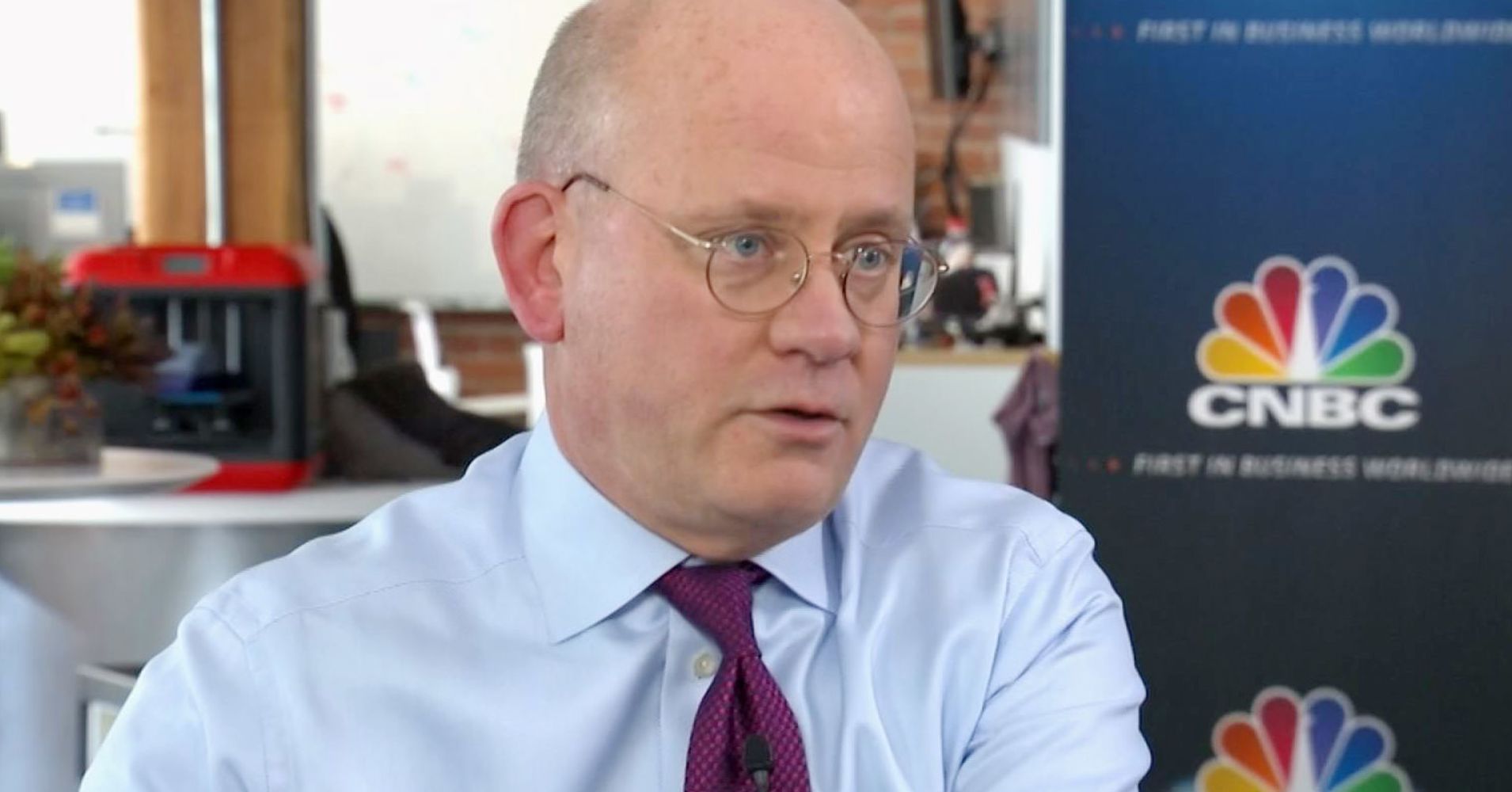
Contrary to what many believe, former General Electric CEO John Flannery wasn’t removed by the ailing industrial’s board because of the pace of his planned turnaround, CNBC’s Jim Cramer said Tuesday.
“It wasn’t about speed,” the “Mad Money” host argued. “It was about the charges, the unexpected charges that, quite frankly, shouldn’t have been unexpected.”
The charges Cramer referred to were the hefty costs incurred by several of GE’s struggling businesses, namely the long-term health insurance and energy divisions.
For years, GE’s long-term health care business was “an asterisk” on the company’s “ridiculously opaque” financials, Cramer explained. But the policies themselves were simply bad business, he said, allowing middle-aged people to pay very low amounts for long-term health insurance plans that included things like live-in care.
Cramer’s late father had one of these policies, and when the “Mad Money” host priced out the real costs of the plan, he realized it was worth 20 times what his father paid per year.
Yet “it’s not like you needed an anecdotal experience to tell this was a problem,” he said. “Manulife and AIG suffered from the same woes. Yet I don’t think that [former GE CEO Jeff] Immelt or even Flannery really understood the obvious consequences of writing these nefarious policies.”
Immelt flubbed GE’s position in energy, too, Cramer said. The longtime GE chief bought Alstom’s energy business in 2015, right around the peak in energy prices, leading to a $23 billion impairment charge on GE’s part when the power business underperformed.
But besides the fact that Flannery, who was replaced by former Danaher chief Larry Culp, should have known about the instability of the businesses, individual investors could have known too, Cramer said.
“It was an open secret that the problems at GE were much more all-encompassing than Immelt ever admitted,” he said. “If you simply examined the reports from [GE analyst] Steve Tusa … at J.P. Morgan, it was easy to see the how the company’s ‘buy high, sell low’ philosophy had caused some horrific problems.”
So why did Flannery, at risk of being ousted, not act on the multi-billion-dollar charges that were coming GE’s way? Cramer’s best guess was the business world’s “mafia-style code of silence.”
“American business has a strange aversion to looking at what actually went wrong in the past, actually learning from history,” he said. “It’s almost considered a sin to go back and examine a predecessor’s mistakes if you’re coming from the same organization.”
But with Culp, an outsider, now at the helm of the industrial giant, the “Mad Money” host had hope that GE would see a true, company-changing overhaul.
“He’s free to take all the charges GE needs and, of course, he can cut the dividend and maybe he can do a hundred-million-share secondary offering to help fix the balance sheet. That was almost impossible for someone from the inside to do,” Cramer said.
“In short, Flannery got fired because the board was in the dark, clueless as to how bad things really were because no one seriously examined the Immelt era,” he continued.
“It’s either that or this stuff was really well hidden, and we know it wasn’t. All you had to do was read the research. If I were Culp, the first thing I’d do is hire Steve Tusa from J.P. Morgan. I’d put him on the board. You want no more surprises? That’s the move to make. Controversial? Yes. Correct? Absolutely.”
Disclosure: Cramer’s charitable trust owns shares of Danaher and J.P. Morgan.
Questions for Cramer?
Call Cramer: 1-800-743-CNBCWant to take a deep dive into Cramer’s world? Hit him up!
Mad Money Twitter – Jim Cramer Twitter – Facebook – Instagram – VineQuestions, comments, suggestions for the “Mad Money” website? madcap@cnbc.com
